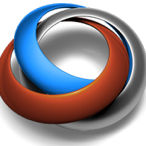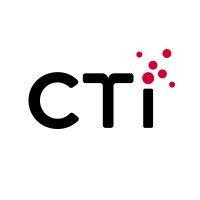预约演示
更新于:2025-05-07

DiaKine Therapeutics, Inc.
更新于:2025-05-07
概览
关联
2
项与 DiaKine Therapeutics, Inc. 相关的药物靶点- |
作用机制- |
在研适应症 |
最高研发阶段临床3期 |
首次获批国家/地区- |
首次获批日期- |
靶点- |
作用机制- |
在研机构- |
在研适应症- |
最高研发阶段无进展 |
首次获批国家/地区- |
首次获批日期- |
1
项与 DiaKine Therapeutics, Inc. 相关的临床试验NCT00896077
A Safety, Tolerability and Bioavailability Study of Lisofylline After Continuous Subcutaneous (12 mg/kg) and Intravenous (12 mg/kg) Administration in Healthy Subjects and in Subjects With Type 1 Diabetes Mellitus
Type 1 diabetes mellitus (T1DM) is an autoimmune disease. Autoimmune diseases happen when the immune system does not identify part of the body as belonging to it. The immune system then destroys that part as if it were an unknown tissue in the body. In T1DM, the body kills the cells in the pancreas that produce insulin. Insulin is the hormone that "unlocks" the cells of the body. It allows glucose to enter and fuel them. Special cells in the body called islets make the insulin. Since glucose cannot enter the cells, it builds up in the blood. The body's cells literally starve to death. Children are at risk of developing T1DM and the risk is much higher than other severe, chronic childhood diseases. The only treatments are a careful diet, planned physical activity, and testing blood sugar levels several times a day. The patient must also inject insulin each day or use an insulin pump. There is no cure for T1DM. Insulin injections are considered life support, because going without insulin for just a few days causes the blood to have too much acid in it and that can lead to death. On the other hand, taking too much insulin makes blood sugar levels go too low, and if untreated, can lead to death as well.
DiaKine is developing Lisofylline to treat the failed immune system. This is what caused T1DM in the first place and it does not go away. The purpose of this study is to see how safe the study drug is. The study is also going to compare the levels of study drug in the blood and to measure the effect of the study drug on other substances in the blood that are linked to type 1 diabetes. These levels will be measured after the study drug is given as an injection under the skin and an injection into the vein. To date, Lisofylline has been tested when given as an injection in the vein.
The investigators hypothesize that Lisofylline will be safe when given as an injection under the skin and in the vein and that levels of study drug will be very similar when given as an injection under the skin and in the vein.
The investigators also hypothesize that Lisofylline will have a positive effect on the substances in the blood that are linked to type 1 diabetes.
DiaKine is developing Lisofylline to treat the failed immune system. This is what caused T1DM in the first place and it does not go away. The purpose of this study is to see how safe the study drug is. The study is also going to compare the levels of study drug in the blood and to measure the effect of the study drug on other substances in the blood that are linked to type 1 diabetes. These levels will be measured after the study drug is given as an injection under the skin and an injection into the vein. To date, Lisofylline has been tested when given as an injection in the vein.
The investigators hypothesize that Lisofylline will be safe when given as an injection under the skin and in the vein and that levels of study drug will be very similar when given as an injection under the skin and in the vein.
The investigators also hypothesize that Lisofylline will have a positive effect on the substances in the blood that are linked to type 1 diabetes.
开始日期2009-05-01 |
申办/合作机构 |
100 项与 DiaKine Therapeutics, Inc. 相关的临床结果
登录后查看更多信息
0 项与 DiaKine Therapeutics, Inc. 相关的专利(医药)
登录后查看更多信息
1
项与 DiaKine Therapeutics, Inc. 相关的新闻(医药)2012-10-12
NEW YORK, Oct. 11, 2012 /PRNewswire/ -- Islet Sciences, Inc., (OTCBB: ISLT) a biotechnology company engaged in the research, development and commercialization of patented technologies in the field of transplantation therapy for patients with diabetes, today announced the publishing of results from a study regarding the production and function of IL-12 in Islets and Beta cells. The conclusion and interpretation of the study is that these data identify beta cells as a local source of IL-12 ligand and suggest a direct role of IL-12 in mediating beta cell pathology.
Diakine Therapeutics, a wholly owned subsidiary of Islet Sciences, has compounds targeting the IL-12 pathway related to Diabetes and other endocrine disorders such as Atherosclerosis. Recently, Diakine has announced receipt of European patents along with grant support for the opportunity to address disease affected by IL-12. For more information on Diakine Therapeutics:
The hypothesis of the study is that IL-12 is an important cytokine in early inflammatory responses and is implicated in the immune- mediated pathogenesis of pancreatic islets in diabetes. However, little is known about the direct effects of IL-12 on islets and beta cells.In this study, beta cell function, gene expression and protein production were assessed in primary human donor islets and murine beta cell lines in response to stimulation with IL-12 or a pro-inflammatory cytokine cocktail.
The pro-inflammatory cytokine cocktail induced islet dysfunction and potently increased the expression and production of IL-12 ligand and IL-12 receptor in human islets. In human islets, the receptor for IL-12 co-localised to the cell surface of insulin-producing cells. Both IL-12 ligand and IL-12 receptor are expressed in the homogeneous beta cell line INS-1. IL-12 induced changes in gene expression, including a dose-dependent upregulation of IFN (also known as IFNG), in INS-1 cells. A neutralising antibody to IL-12 directly inhibited IFN gene expression in human donor islets induced by either IL-12 or pro-inflammatory cytokine stimulation. Functionally, IL-12 impaired glucose-stimulated insulin secretion (GSIS) in INS-1 cells and human donor islets. A neutralising antibody to IL-12 reversed the beta cell dysfunction (uncoupling of GSIS or induction of caspase- 3 activity) induced by pro-inflammatory cytokines.
"This new study clearly shows IL-12 is made locally in islets and plays a role to damaged islets," stated John Steel, Chairman and CEO of Islet Sciences. "Additionally, this study provides support for Diakine to develop its new patented compounds to reduce IL-12 action."
About Islet Sciences, Inc.
Islet Sciences is a development-stage biotechnology company with patented technologies focused on transplantation therapy for people with insulin-dependent diabetes. The Company's transplantation technology includes methods for the culturing, isolation, maturation, and immunoprotection (microencapsulation) of islet cells. The Company's mission includes the introduction of commercial products with applications to cell-based replacement therapy in the healthcare marketplace. For more information:
Forward-Looking Statements
This press release contains forward-looking statements within the meaning of the Private Securities Litigation Reform Act of 1995. Forward-looking statements for Islet Sciences reflect current expectations, as of the date of this press release, and involve certain risks and uncertainties. Actual results could differ materially from those anticipated in these forward- looking statements as a result of various factors. Factors that could cause future results to materially differ from the recent results or those projected in forward-looking statements include the risks described in the Islet Science's reports filed with the Securities and Exchange Commission. The companies' further development is highly dependent on future medical and research developments and market acceptance, which is outside their control.
Investor Contact:
Jeff Ramson
ProActive Capital Group
(646) 863-6893
jramson@proactivecrg.com
SOURCE Islet Sciences, Inc.
抗体
100 项与 DiaKine Therapeutics, Inc. 相关的药物交易
登录后查看更多信息
100 项与 DiaKine Therapeutics, Inc. 相关的转化医学
登录后查看更多信息
组织架构
使用我们的机构树数据加速您的研究。
登录
或

管线布局
2026年02月07日管线快照
管线布局中药物为当前组织机构及其子机构作为药物机构进行统计,早期临床1期并入临床1期,临床1/2期并入临床2期,临床2/3期并入临床3期
其他
2
登录后查看更多信息
当前项目
| 药物(靶点) | 适应症 | 全球最高研发状态 |
|---|---|---|
利索茶碱 | 1型糖尿病 更多 | 无进展 |
Anti-inflammatory therapeutics (DiaKine) | 动脉硬化 更多 | 无进展 |
登录后查看更多信息
药物交易
使用我们的药物交易数据加速您的研究。
登录
或

转化医学
使用我们的转化医学数据加速您的研究。
登录
或

营收
使用 Synapse 探索超过 36 万个组织的财务状况。
登录
或

科研基金(NIH)
访问超过 200 万项资助和基金信息,以提升您的研究之旅。
登录
或

投资
深入了解从初创企业到成熟企业的最新公司投资动态。
登录
或

融资
发掘融资趋势以验证和推进您的投资机会。
登录
或

生物医药百科问答
全新生物医药AI Agent 覆盖科研全链路,让突破性发现快人一步
立即开始免费试用!
智慧芽新药情报库是智慧芽专为生命科学人士构建的基于AI的创新药情报平台,助您全方位提升您的研发与决策效率。
立即开始数据试用!
智慧芽新药库数据也通过智慧芽数据服务平台,以API或者数据包形式对外开放,助您更加充分利用智慧芽新药情报信息。
生物序列数据库
生物药研发创新
免费使用
化学结构数据库
小分子化药研发创新
免费使用

